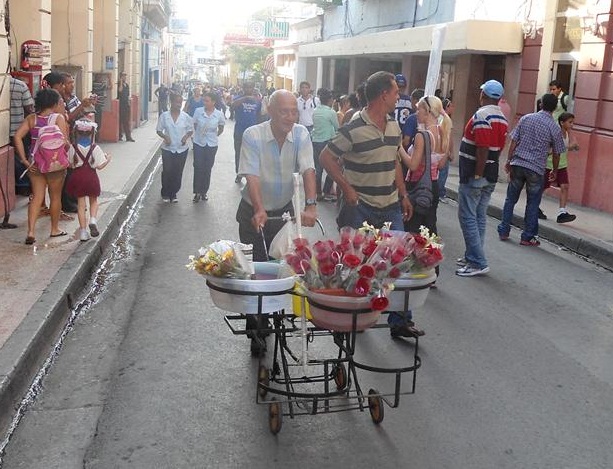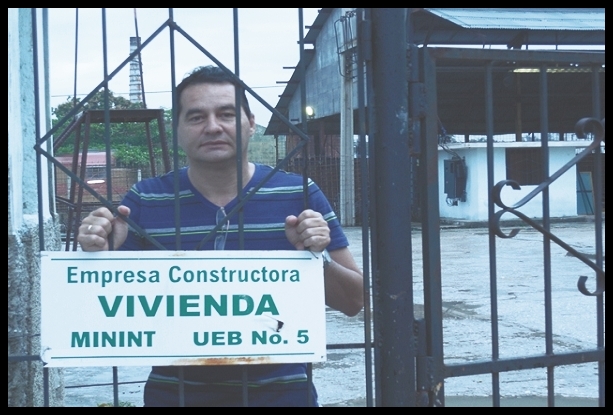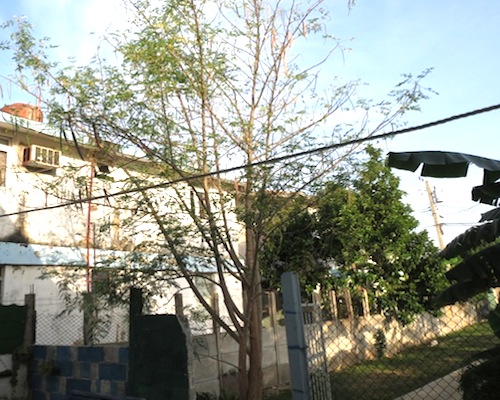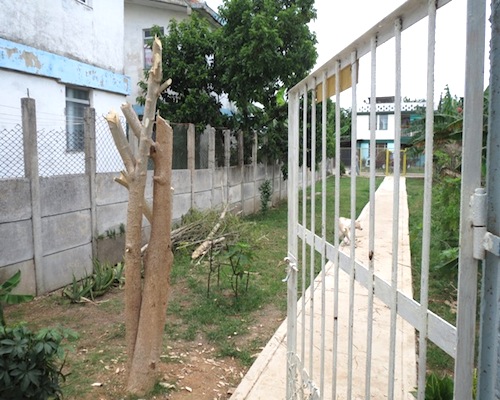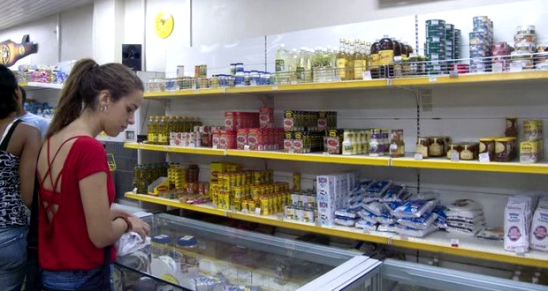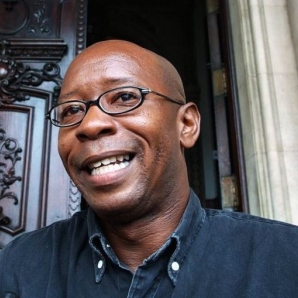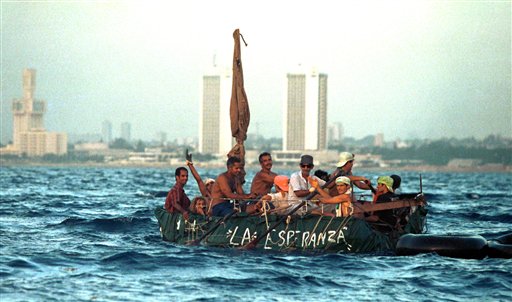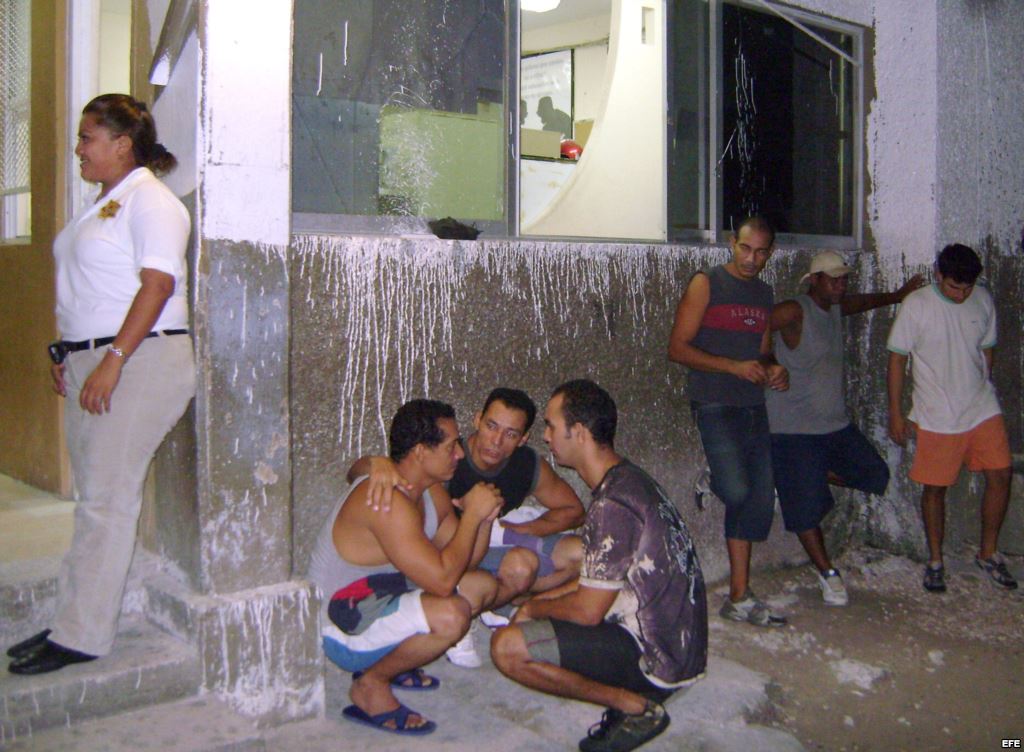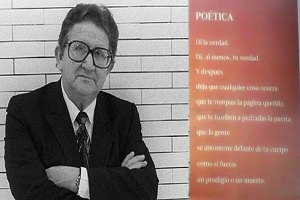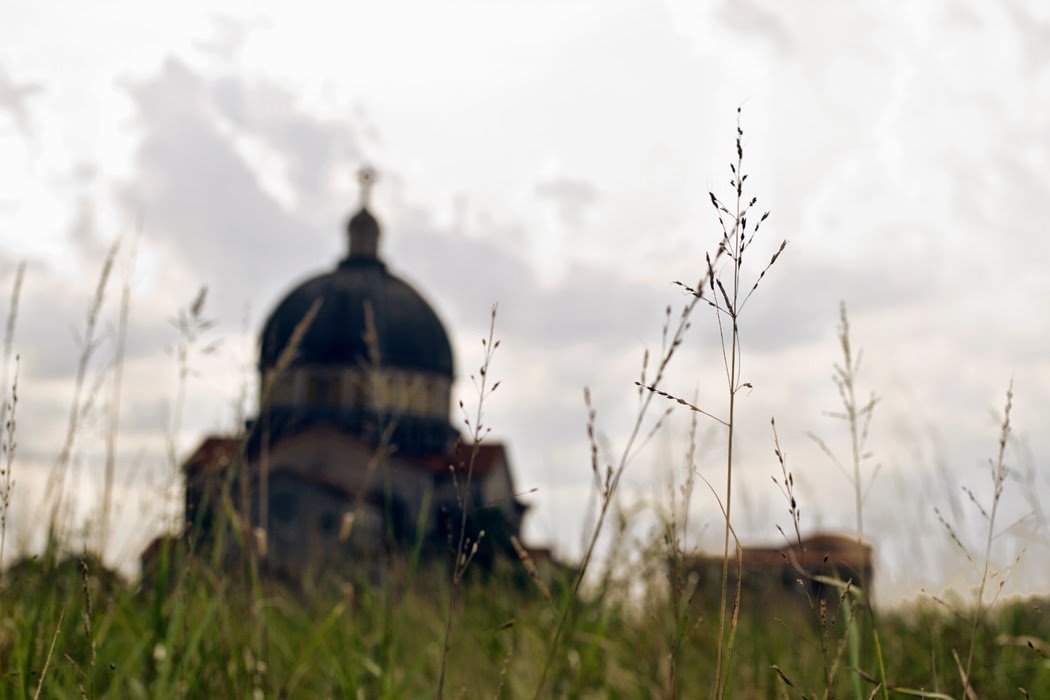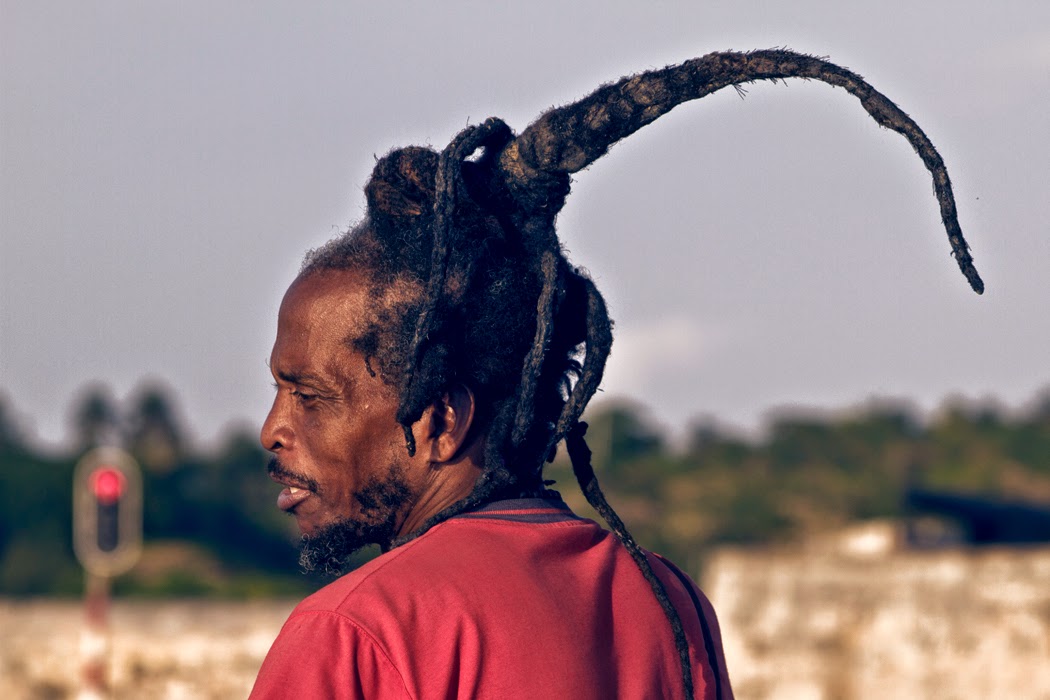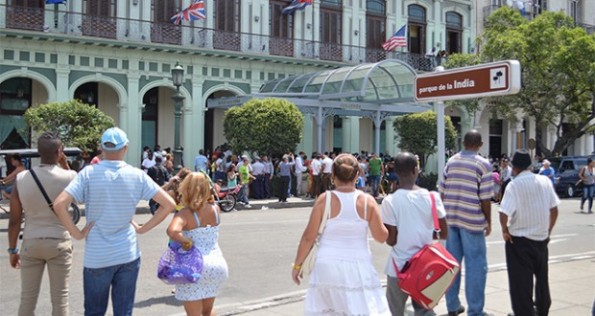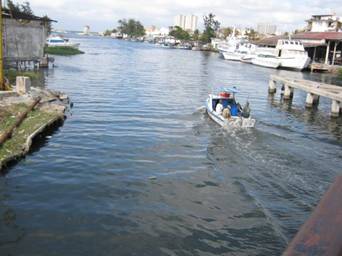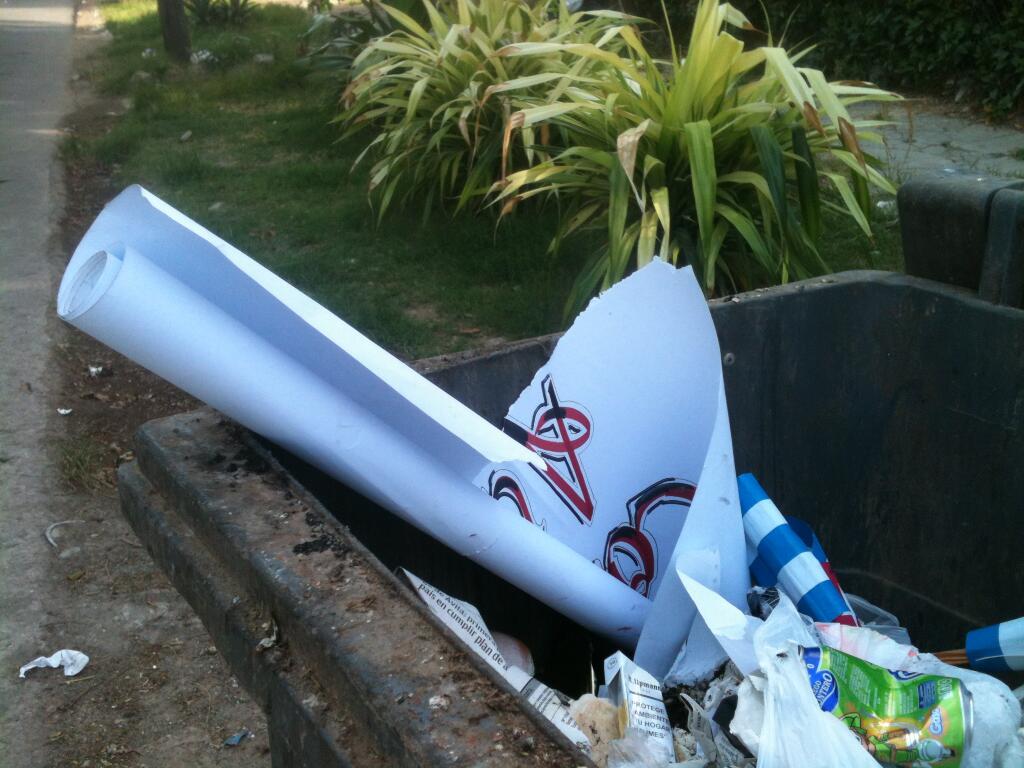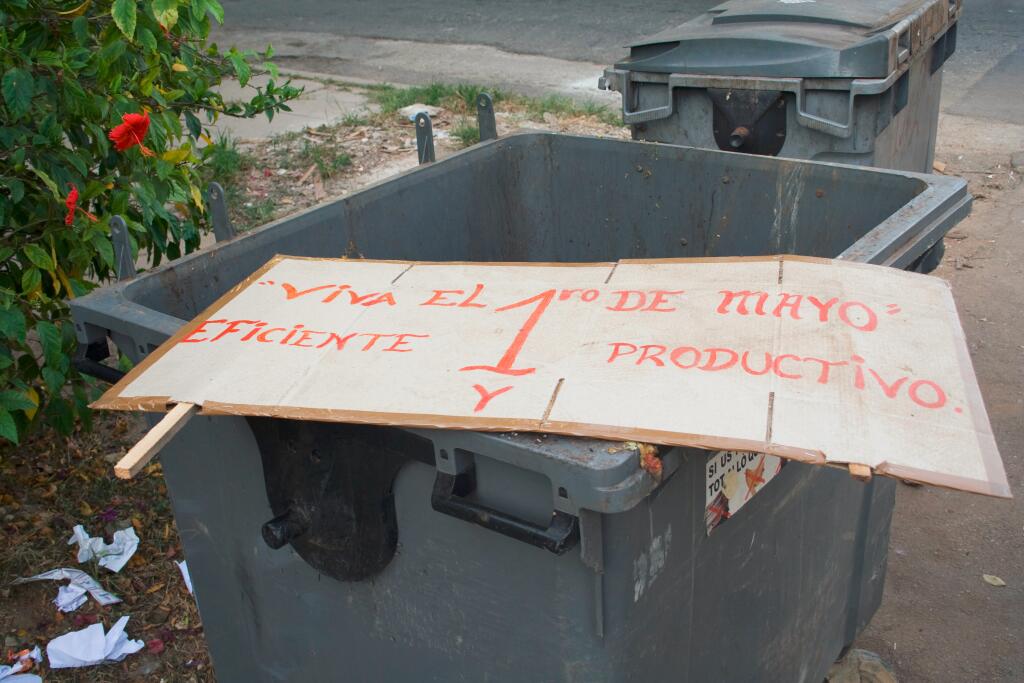Olga, a 62-year-old engineer, spends 11.50 CUC a month (about US $13.00) on two bags of powdered milk for herself and her family.
“I don’t consider a glass or two of milk in the morning for breakfast a luxury. My 93-year-old father drinks as much as four glasses. A relative in Switzerland sends me 100 euros a month so I can provide the old man with beef, milk and cheese. On my 512 peso salary (about $22.00) I would never be able to afford it,” says Olga.
The new price increases set by the government of President Raul Castro mean that the Havana engineer will have to pay 13.20 CUC for two one-kilogram bags, an increase of 1.70 CUC. continue reading
The problem in Cuba is that from 2005 until now prices for a variety of goods that can only be bought with hard currency have risen between 20% to 60%.
In 2005 beef, chicken, cheese, milk, yogurt, oil, sausages and toiletries for a family of three cost $100. Nine years later the price has almost doubled.
Some increases happen without any warning. “One fine day you go to the store only to discover that cheese which cost 4.40 CUC the day before now sells for 4.95. It’s really galling. Everything is blamed on the economic crisis, on the U.S. blockade (embargo) and rising food prices worldwide,” says a woman outside a store on San Rafael Boulevard.
It is true that since 2007 the prices of certain foods have soared in the global marketplace. But Cubans wonder if this has also caused the prices of plasma TVs, computers and refrigerators to go up.
A 32-inch television that cost a little over $200 in Miami is priced between $640 and $750 at hard-currency stores in Cuba, where the average monthly salary is no more than $20.
An LG dual-temperature refrigerator cost $571 in 2004. The same model is now worth 760 CUC, about $850 at the official exchange rate.
Detergent, oil and soap have also risen between 20% and 35% in the last ten years. These actions were taken by an irate Fidel Castro after the United States discovered in 2005 that the Swiss bank UBS had been retiring old banknotes in an account worth more than $4 billion controlled by the Cuban government.*
Castro then imposed a 20% tax on the Yankee dollar. With an innkeeper’s mindset, he jacked up prices on items sold in hard currency by 200% to 500% in order to subsidize his social programs.
It proved to be a windfall. Following Robin Hood’s playbook, dollars were taken from those who had them in order to finance government programs such as school lunches, the energy revolution and the “Battle of Ideas.”
With abject hatred towards Cubans who have left their homeland for political or economic reasons, the military autocrats have (now underhandedly) imposed outrageous fees on goods and services purchased with remittances from overseas. These include telephone services, internet access and exorbitant surcharges on car sales.
With the recent price rise powdered milk is the latest to be added to this list. But the explanation for this does not stand up to scrutiny. If we go online, we find that the price trend worldwide is down.
According to the Uruguayan daily El Observador prices for powdered milk have dropped 10% over the last two months from $5,005 to $4,439 a ton. The decline is expected to continue until year’s end when it could reach as low as $4,200. That would amount to a roughly 16% drop from the beginning to the end of 2014.
Recently, a reporter for Martí News, Pablo Alfonso, published an article which exposes the Cuban regime. Alfonso reports that Global Dairy Trade — an auction platform for internationally traded commodity dairy products which holds an auction twice a month in which over 90 countries participate — reported that in the last twelve months sales of milk powder fell 8.4%. In the latest transactions the commodity sold for $4,033 a ton.
In the case of skim-milk — the kind sold on the island — the decline was 9.6%, equivalent to $4,126 per metric ton. Global Dairy Trade’s figures also indicate that the price for powdered skim-milk on the international market was $4,372 a ton in January 2014 and $4,452 in February.
According to official figures released in Cuba, however, the price for a ton of powdered skim milk was set to increase from $4,720 to $5,563. One might ask the country’s foreign trade officials where they are buying powdered milk because what they are paying does not match the published purchase price.
Even the official Cuban newspaper Granma has published comments highly critical of the price increase for powdered milk. A Cuban doctor serving in Saudi Arabia noted that a one-kilogram bag of the best quality powdered milk costs her only about five dollars.
Orestes, a Cuban living in Hialeah, is at a loss for words to describe the regime’s arbitrary pricing schedule.
“It’s robbery,” says Orestes. “In Brazil, bus fares rose 20 cents and people took to the streets. Here in the U.S. not many people buy powdered milk. A gallon (3.8 liters) of fresh 2% fat milk or skim-milk costs $3.89. All these price increases are designed to get emigrants to pay up.”
In Cuba only children up to seven-years-old and people on medically prescribed diets have the right to consume milk at the modest prices set forth in their ration books. In a speech in 2007 in Camaguey, Raul Castro stated, “We have to erase from our minds this up-to-age-seven idea that we have been carrying around for fifty years. We have to produce enough milk so that anyone who wants a glass of milk can have it.”
Seven years later Cubans are still waiting for this promise to be fulfilled.
Iván García
* Translator’s note: U.S. officials discovered that UBS had allowed countries such as Cuba, Iran and Libya to retire old banknotes by replacing them with new ones. This was a violation of an agreement with the Federal Reserve which stipulated that the bank would not accept cash from or transfer cash to countries on which the United States had imposed sanctions. (Source: The New York Sun)
25 April 2014
 Raonel Valdes Valhuerdis, the Cuban accused of carrying out the greatest gold theft in the history of Florida, arrived in the United States this Wednesday under extradition. Detained in Belize when he tried to cross the border on his way to Mexico.
Raonel Valdes Valhuerdis, the Cuban accused of carrying out the greatest gold theft in the history of Florida, arrived in the United States this Wednesday under extradition. Detained in Belize when he tried to cross the border on his way to Mexico.
